- Learning time
- 60 minutes
- First play time
- 120 minutes
Fields of Arle
Designed by: Uwe Rosenberg
Fields of Arle is a game for one or two players designed by Uwe Rosenberg, creator of farming games like Caverna and Agricola, along with many others.
Arle is the most personal of these games, taking as its subject the peat and sheep farming of East Fresia, Rosenberg’s ancestral home, in the 1800s. It’s not often you can point to a board game as being a genuine paean to a particular time and place, but this is very much what Fields of Arle feels like.
The game shares much with it’s forebears in terms of gameplay – players place their worker pawns on spaces to take actions; these might include using fleshing beams to strip hides from animal carcasses, weaving flax into linen, or building plows and peatboats. There are a staggering number of options, and a first play can be quite daunting, until you realise that whilst there are undoubtably optimal moves, there are no ‘wrong’ ones – the game gives you a large collection of tools and specialists, and invites you to play with them.
Essentially you are building your own village, erecting dykes to dehydrate the land, so you can cut peat, sow flax and grain, build stalls, stables and a myriad other buildings. You can raise cattle, sheep and horses; you can build carts to send wood and clay off to be made into timber and bricks; you can visit neighbouring towns to trade surplus goods for food. All of this is elegantly displayed on your home board, and after nine seasons (five summers and four winters), you total up the points on your boards to see who won.
This feels like very a personal project, but not one in which gameplay is sidelined – if anything it feels like a refinement of the systems used in Agricola and later Caverna. As a two player game for those already versed in the earlier incarnations, it’s a sumptuous treat, and one that will provide many many hours of fun.
Joe says
I'm a sucker for a game designed with real heart and soul, and that's undoubtably what this is - Uwe Rosenberg's 'Song for my Father'. If you like Agricola but find the struggle for mere survival too dour, and if the ruby-mining dwarves of Caverna set your nerves jangling, you might try Arle. It plays rather brilliantly solo, too - no special rules, you just try and shoot for high score; 110 points is suggested as a target. I've played 7 or 8 solo games, and 103.5 is my top score so far. But I have to keep trying!
The guru's verdict
-
Take That!
Take That!
Very low. The only interaction with this style of game is taking the action that your opponent wanted, but there are sooo many other options, it would be churlish to take it to heart.
-
Fidget Factor!
Fidget Factor!
Downtime could loom large towards the end of the game, when you want to make sure each worker ekes out the maximum points. But for the most part you'll be grateful of the opportunity to decide what you're going to do next.
-
Brain Burn!
Brain Burn!
I need food and timber to buy this building, which means I need to build a cart to ship the wood to become timber, except that then I've used the wood to build the cart, and I can't get more wood and food with this one worker. Yes, in a word - lots of brain burn. No maths, but plenty of nuanced chains-of-thought to hold in your head. Or you could ignore all that and just think 'more sheep would look pretty standing atop my dyke - I'll get more sheep'.
-
Again Again!
Again Again!
Plenty of replay value here - despite the only variation in set-up being a handful of randomised buildings.

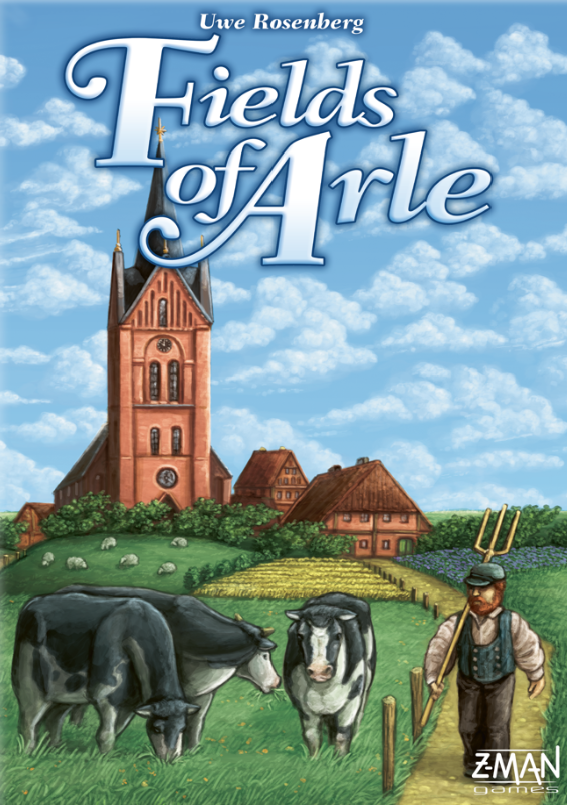
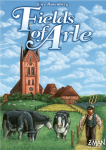
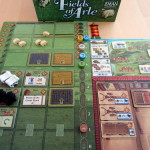
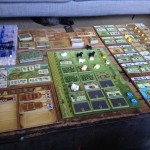
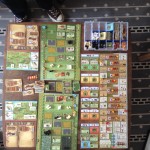
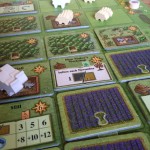


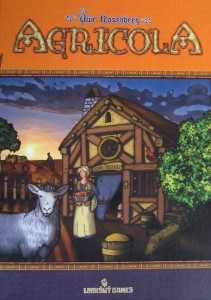
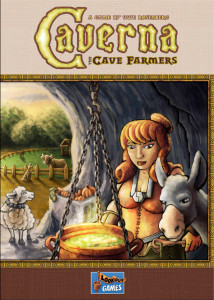
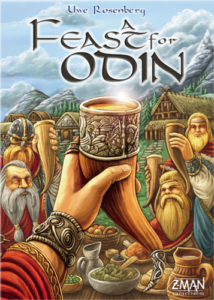
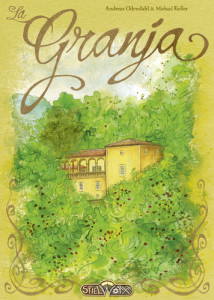
Sam says
At time of writing I've only played Fields of Arle once - Joe has racked up many plays - but I did enjoy it a good deal. This designers' games tend to have a friendly air to them - you can always do something reasonably productive ( - and rewarding) but the challenge is how to maximise that production to outdo your competitors. Even the most ardent Rosenberg fan might notice these games have a lot similarity, and Arle is not hugely different from Caverna, Agricola or A Feast for Odin. But there's no sense of repetition for the sake of cranking out another title - Rosenberg games always feel carefully and lovingly crafted.